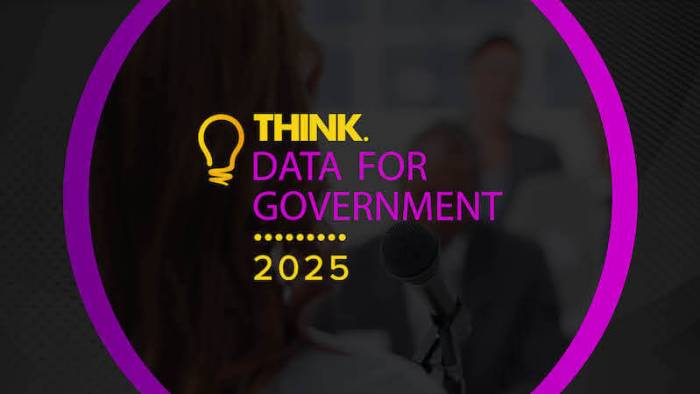Despite the potential benefits, there are public concerns about increasing the use of data.

The latest Public Attitudes to Data and AI (PADAI) Tracker Survey from the Centre for Data Ethics and Innovation (CDEI) shows that people want to know that information about them is being used responsibly and stored safely. They also want to understand how data is informing decisions being made about them.
“Low public trust acts as a barrier to data-driven innovation,” noted the report.
Here are the top takeaways from the report.
1. Health and the economy are perceived as the greatest opportunities for data use
‘Health’ and ‘the economy’ represent the greatest perceived opportunities for data to be used for public benefit. These mirror the areas where the public perceive the biggest issues facing the UK: ‘the economy’ and ‘tax’ have both increased in importance as key issues faced by the UK since the last wave, while health remains a priority issue. In general, UK adults remain broadly optimistic about data use, with reasonably high agreement that data is useful for creating products and services that benefit individuals, and that collecting and analysing data is good for society. Nevertheless, it is important to recognise that differences persist across population groups, with younger people, and those within higher socio-economic grades, seeing various aspects of data use in a more positive light.
2. Data security and privacy are the top concerns, reflecting the most commonly recalled news stories
UK adults report a slight increase in perceived risks related to data security since December 2021, with ‘data not being held securely / being hacked or stolen’ and ‘data being sold onto other organisations for profit’ representing the two greatest perceived risks. These concerns are reflected in the news stories that people recall about data, resulting in a predominantly negative overall recall. At the same time, the UK adult population expresses low confidence that concerns related to data are being addressed.
3. Trust in data actors is strongly related to overall trust in those organisations
Trust in actors to use data safely, effectively, transparently, and with accountability remains strongly related to overall trust in those organisations to act in one’s best interests. This is therefore affected by other events which impact on the level of trust in those organisations (such as public discussions about the current energy crisis, and mismanagement of sewage affecting public trust in utility companies). While trust in the NHS and academic researchers to use data remains high, a drop in the public’s trust in the government and utility companies and their data practices has been reported since the previous wave. Trust in big technology companies to act in people’s best interest has also fallen since 2021, particularly amongst those who are most positive and knowledgeable about technology. Trust in social media companies remains low.
If you liked this content…
4. UK adults do not want to be identifiable in shared data – but will share personal data in the interests of protecting fairness
When it comes to data governance, people want their data to be managed by experts, and for the privacy of their data to be prioritised. ‘Identifiability’ stands out as the most important consideration for an individual to be willing to share data, and UK adults express a clear preference that they are not personally identifiable in data that is shared. People also express a preference for experts to be involved in the decision-making process for data sharing, over a public or self-assessed review.
While identifiability is the most important criterion driving willingness to share data, the wider UK adult population is willing to share demographic data for the purpose of evaluating systems for fairness towards all groups. The proportion of people who would be comfortable sharing information about their ethnicity, gender, or the region they live in, to enable testing of systems for fairness is 69 percent, 68 percent and 61 percent respectively. In comparison, adults with very low digital familiarity are less comfortable sharing information about their ethnicity (47 percent), gender or region they live in (both 55 percent).
5. The UK adult population prefers experts to be involved in the review process for how their data is managed
Out of all types of governance tested, people value the involvement of experts in the review process over the involvement of the public, self-assessed review, or no review, suggesting that the public prefers to delegate decisions around data management to professionals skilled in this field. This preference for experts to be involved in decision-making processes related to shared data is stronger among adults with low levels of trust in institutions tested compared to those with high levels of trust.
6. People are positive about the added conveniences of AI, but expect strong governance in higher risk scenarios
The UK adult population has a positive expectation that AI will improve the efficiency and effectiveness of regular tasks. However, public views are split on the fairness of the impact of AI on society, and on the effect AI might have on job opportunities. People have higher demands for governance in AI use cases that are deemed higher risk or more complex, such as in healthcare and policing. Healthcare is the area in which UK adults expect there to be the biggest changes as a result of AI. However, overall AI still ranks fairly low against other societal concerns, signalling this is not yet a front of mind topic or concern for people.
7. Those with very low digital familiarity express concerns about the control and security of their data, but are positive about its potential for society
Members of the public with very low digital familiarity have low confidence in their knowledge and control over their personal data, with the majority saying that they know little or nothing about how their data is used and collected (76 percent). Few feel that their data is stored safely and securely (28 percent). As a result, they are less likely than the wider UK adult population to feel they personally benefit from technology. However, they are reasonably open to sharing data to benefit society, and the majority consider collecting and analysing data to be good for society (57 percent).
Check out the hybrid Think Data for Government event which looks at some key opportunities and challenges for public bodies and their suppliers, featuring a diverse range of exciting speakers debating current thinking and best practices.








